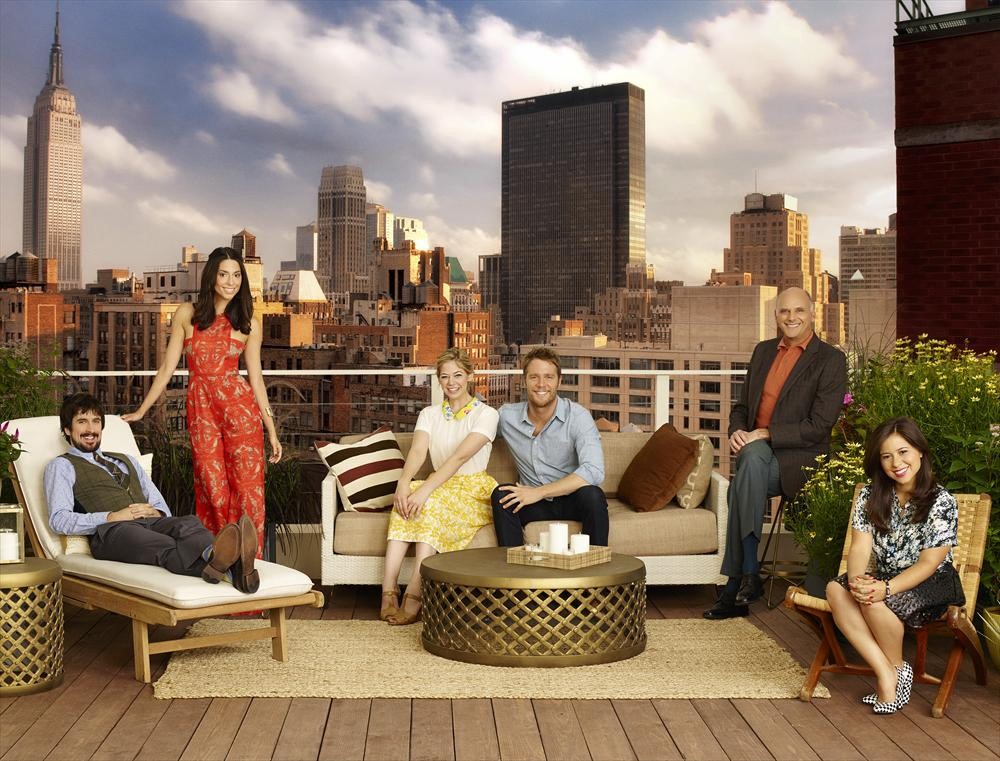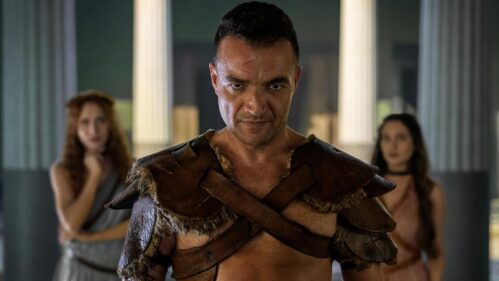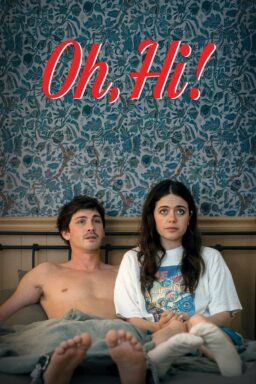Casting is so essential to the success of a new
comedy. While I recognize the flaws in ABC’s new “Selfie,” I like the
two leads enough to allow those concerns to fade away as I program the DVR to
record at least the next new episode. By the same token, while I see some clever
beats in the show that ABC has chosen to follow “Selfie” in an attempt to
launch a Tuesday night hour—“Manhattan Love Story”—two episodes have me
convinced that the program is miscast, and it’s built on a concept that’s dependent on likable
characters to work but the show doesn’t have any. Why is “Selfie” the better show? Because, and this is
more key for a sitcom than any other kind of show, I want to hang out with the
people of this world. The ones in “Manhattan Love Story” just annoy me.

In the real world, no one would
call Eliza Dooley (Karen Gillan of “Oculus” and “Guardians of the Galaxy”)
likable. In fact, “Selfie” is
predicated on the concept that she’s anything but. Eliza is a self-obsessed,
tech-driven narcissist—the kind of person who has more Facebook friends and
Twitter followers than real human connections. And there’s a reason her name
sounds a bit familiar. Eliza Doolittle of “Pygmalion” and “My Fair Lady” is the
obvious aesthetic ancestor to our 2014 Ms. Dooley, a woman similarly out of
touch with the world around her and uneducated in social grace. This Eliza is a
relatively low-level employee at a marketing firm who learns the very hard way
that none of her co-workers like her after an embarrassing incident on a plane
goes viral, and her colleagues can’t stop laughing at her the next day. She
also learns that she has no real friends in her “actual” life either as all the
people who liked her Instagram posts don’t exactly come rallying to her defense
when she’s down.
Just as she’s about to slink
away into the darkness or, worse, rekindle her anti-social-social-networking,
this Eliza finds her Henry (John Cho) in the form of the company’s ace
marketing executive. If he can turn around a troubled brand for his company, why can’t he
reimagine the brand that is Eliza Dooley? The well-spoken, overly-mannered
Henry forces Eliza to put her phone away, actually like things instead of “Like”-ing
them and live in the moment instead of thinking of a way to share it on social
media. He forces a complete makeover, making her presentable to the executive
world in which he runs not unlike Henry Higgins did to Eliza Doolittle.
The pilot of “Selfie,” which has
been available on Hulu for some time in an effort to build buzz for the show,
is imperfect but entertaining. As much as my critical mind finds some of the
jokes easy and the characters remarkably broad, Gillan finds something
vulnerable and relatable in a character that other actresses would have merely
turned into an unlikable monstrosity. I wish the inciting incident for Eliza’s
character reboot wasn’t so ridiculous as to involve multiple bags of human
vomit, but there’s something there in Gillan’s performance that I think could grow
richer and even more likable as the show goes on. And I’ve always been a Cho
fan, hoping he could find the right part on the right sitcom after years of
failed attempts at TV glory. Most importantly, Gillan and Cho have solid
chemistry, as any good Eliza and Henry need to have to make the transformation
of both characters complete.

And that’s one of the key
problems with “Manhattan Love Story”—its
two love-crossed leads are a pair of characters that the audience, at least
after two episodes, will have no interest in seeing get together. Romantic
comedies demand likable characters. We need to root for our hero and heroine to
find love with one another. After a pair of episodes, “Manhattan Love Story” is
missing that essential ingredient—the chemistry that demands comparison to great
TV love affairs like Ross & Rachel, Sam & Diane and Jim & Pam.
While those may seem like high bars to clear, the WHOLE show is built around
the idea that these two people will eventually get together. It’s their “Love
Story.” If that element doesn’t work, it all falls apart.
The pair at the center of “Manhattan
Love Story” is Peter (Jake McDorman) and Dana (Analeigh Tipton), a pair of traditionally stymied single people hoping for something greater than eHarmony can provide. The script
here is a constant barrage of inner monologue turned narration, most of it centered on how love
and life is different in the Big Apple, without ever making that key element of
the show feel genuine. The first two episodes are filled with supposedly witty
insights about “That’s how people date in
New York” without ever getting deeper than that. In fact, it feels decidedly
NOT tough or gritty enough to be a story about New York. It’s more “Vancouver
Love Story.”
There’s a faux modernity—look at
how hip and Manhattan these characters are!—that punctures any efforts by
Tipton or McDorman to find the hearts of these two love-crossed city dwellers. I’ve
particularly liked Tipton before in films like “Crazy, Stupid, Love” but she’s
miscast here as the single woman with no idea how the dating world works. And
McDorman’s interest in her feels fake. What does he see in her? What does she see in him? It’s not necessarily their fault but
the spark, the magic that would have been there with better writing or better
casting, is missing. We can’t get to the essential core of what each of them see in one another. Or what
we should see in the show.












